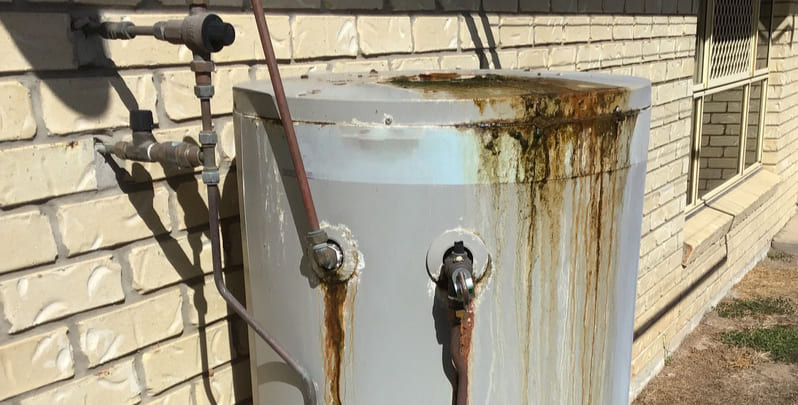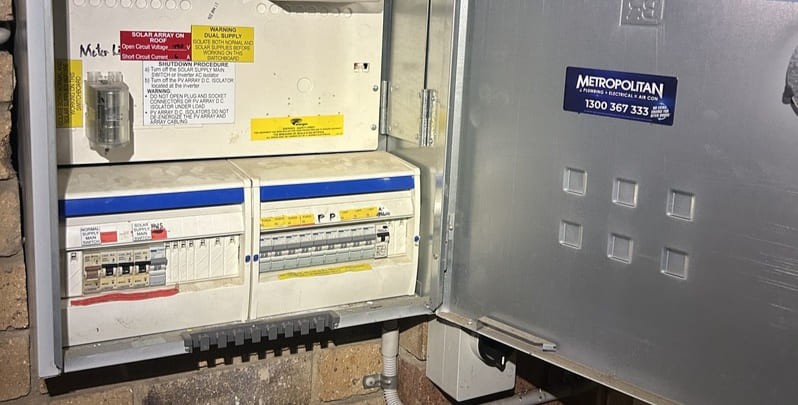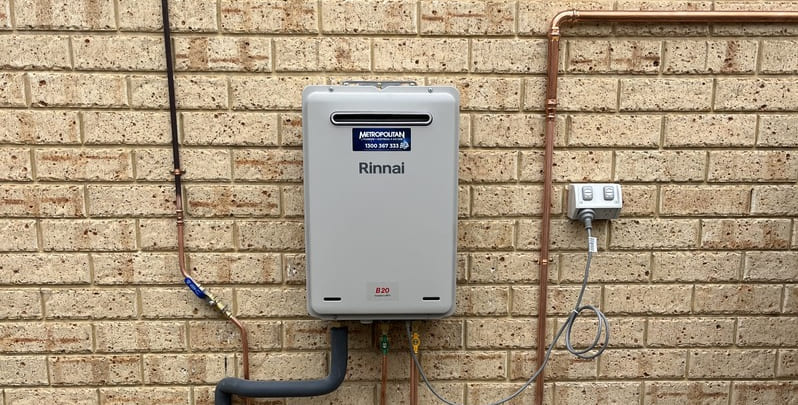
5 Things To Do When You Find Your Hot Water System Leaking
Has your peaceful morning ever been shattered by discovering a hot water system leaking in your home? Trust me, it’s not exactly the way you want to start your day!
A leaking hot water system not only leads to abrupt ice-cold showers but a broken system can also cause significant damage to your property. It can be a serious problem. But don’t fret; with a little guidance, you can navigate this situation swiftly and effectively.
Here are five simple step-by-step instructions to help you prevent your home from becoming an unintended indoor swimming pool.
Step 1: Shut Off the Water Supply
The moment you discover your hot water system leaking, the first and foremost thing you should do is to cut off the water supply at the shut-off valve. You’ll typically find this valve on the pipe that feeds water into your hot water system, whether you have a gas water heater or electric water heater.
If you follow the pipe, you’ll spot a round or lever-style handle. Rotating this handle clockwise will successfully cut the flow of water. By immediately taking this action, you effectively stop additional water from escaping and causing further damage.
This should buy you time to investigate the issue and decide on the next steps, without adding to the mess.
Step 2: Power Off Your System
The second vital step to managing a hot water system leaking in your home is to ensure your safety by cutting off the power supply to your water heater. You don’t need to know every square inch of your hot water system technology, but knowing how to shut it down is important.
If you have a gas hot water system, look for the gas valve and turn it to the ‘off’ position. If you have an electric hot water system, make a beeline to your main electrical panel and flip off the circuit breaker that controls the water heater.
Shutting off the supply of power will prevent any risk of electrical shocks or gas leaks as you further inspect your hot water heater. No matter how minor you might consider your leak to be, it’s a step that you should never skip.

Step 3: Inspect the Leak Source
Once you’ve put safety measures firmly in place, the next action is to identify the cause of your hot water system leaking. This step might be a bit tricky as leaks in hot water systems can originate from several places:
- Pressure relief valves: The pressure relief valve can discharge water if your system’s water pressure becomes too high, which is a common occurrence. Check for any water trails leading to the pressure relief valve. If you’ve not had a pressure limiting valve installed, address that situation ASAP as it’s the best way to deal with issues around water pressure.
- The hot water tank itself: Carefully examine your hot water tank. Look for signs that you might have a damaged tank. This might include signs of corrosion, cracks or other possible defects that could result in your hot water tank leaking. You may need to bite the bullet and get a new hot water system.
- Pipe connections: These could also be the culprits. Check for loose or deteriorated connections that might be enabling water to escape.
It’s worth examining other valves as well, such as the cold water inlet valve and drain valve. Knowing why there is water leaking from your hot water service is the first step towards a solution.
Step 4: Reach Out to a Hot Water Systems Specialist
There’s no shame in calling for reinforcements. It’s actually highly recommended, especially when you have a leaking hot water system. Water heaters can be complex, and you don’t want to risk further damage or voiding your warranty.
Australia’s got plenty of certified plumbers ready to help with hot water system leaks. When contacting a licensed hot water specialist, it’s crucial to provide as much information as you can:
- The brand and model of your hot water system.
- The age of your system
- The location and severity of the leak.
Providing these details will enable the plumber to bring along the right tools and possibly the necessary replacement parts.
Step 5: Reduce Potential Water Damage
Once you’ve found your hot water system leaking and called in the local plumber, there are still measures you can take to limit water damage in your home.
Firstly, promptly remove any items in the vicinity of the leak that may be affected by the leaking water, especially electrical appliances. Secondly, mop up the standing water to prevent it from soaking into your floors or walls, which could lead to structural damage or mould growth.
Finally, if possible, ventilate the area by opening windows or using fans to aid in the drying process. By being proactive, you can help minimise the impact of a hot water system leak.
Maintenance Tips to Prevent Future Leaks
Regular servicing and maintenance is the best way to reduce the likelihood of a future hot water heater leak. Keeping up with regular maintenance can extend the life of your entire system and give you peace of mind.
Start with regular inspections of your system. Look for any signs of wear, corrosion, or rust, which might indicate a future hot water heater leak. Draining and flushing the tank annually can help remove sediment build-up and help you prevent leaking hot water tank issues in the future.
The anode rod, which helps prevent your heated water tank from rusting, should be replaced every 3-5 years to keep your system functioning optimally. Remember, to prevent leaks from your hot water system from the get-go is always better – and cheaper – than trying to find a cure.

What To Do If You Get Burned By Your Hot Water System Leaking
The last thing you want to do when you find your hot water system is leaking is cause yourself an injury when trying to deal with the situation before the plumber arrives.
However, when you find yourself with dripping water or something more severe, it certainly helps to know what to do if someone is scalded by hot water.
If you need to administer first aid to someone due to a burn:
- Remove clothing as soon as possible. This allows heat to escape through the skin. However, if the clothes are sticking to the skin, leave them on.
- Immediately place the affected area under cold running water and hold it there for 20 minutes. This not only helps to relieve the pain, but also helps to stop further burning.
- Cover the burnt area with a loose, non-stick dressing. You can use one from a first-aid kit, plastic cling wrap, or a clean cloth. Keep the person warm. If the burn is larger than 3cm, is blistering, or is on the hands, face or genital area, seek medical advice as soon as possible.
It’s always important to never use oil, butter or ointment on a burn. These can actually lead to further skin damage.
When It Comes to a Leaking Hot Water System …
Finding your hot water system leaking may not be how you planned to start your day, but with the right approach, you can manage it smoothly.
Following these steps – shutting off the power and water supply, identifying the leak source (faulty pressure relief valve, the water heater storage tank, or loose connections), calling in a hot water system repair specialist, and mitigating water damage – can help minimise damage and restore your peace of mind.
Regular maintenance can also keep future water heater leaks at bay. Prompt action and preventative care are your best bet against water damage.
Please note: This information is provided for advice purposes only. Regulations differ from state to state, so please consult your local authorities or an industry professional before proceeding with any work. See our Terms & Conditions here.
Published: 2023-06-13

















